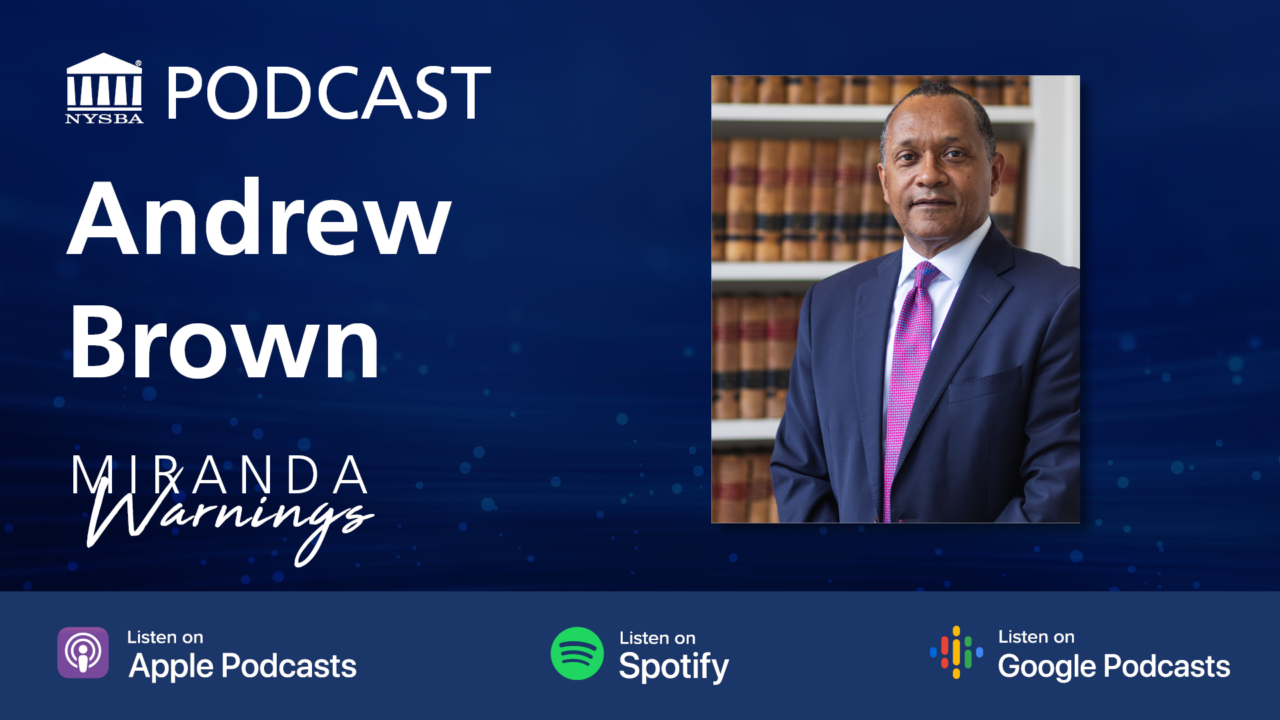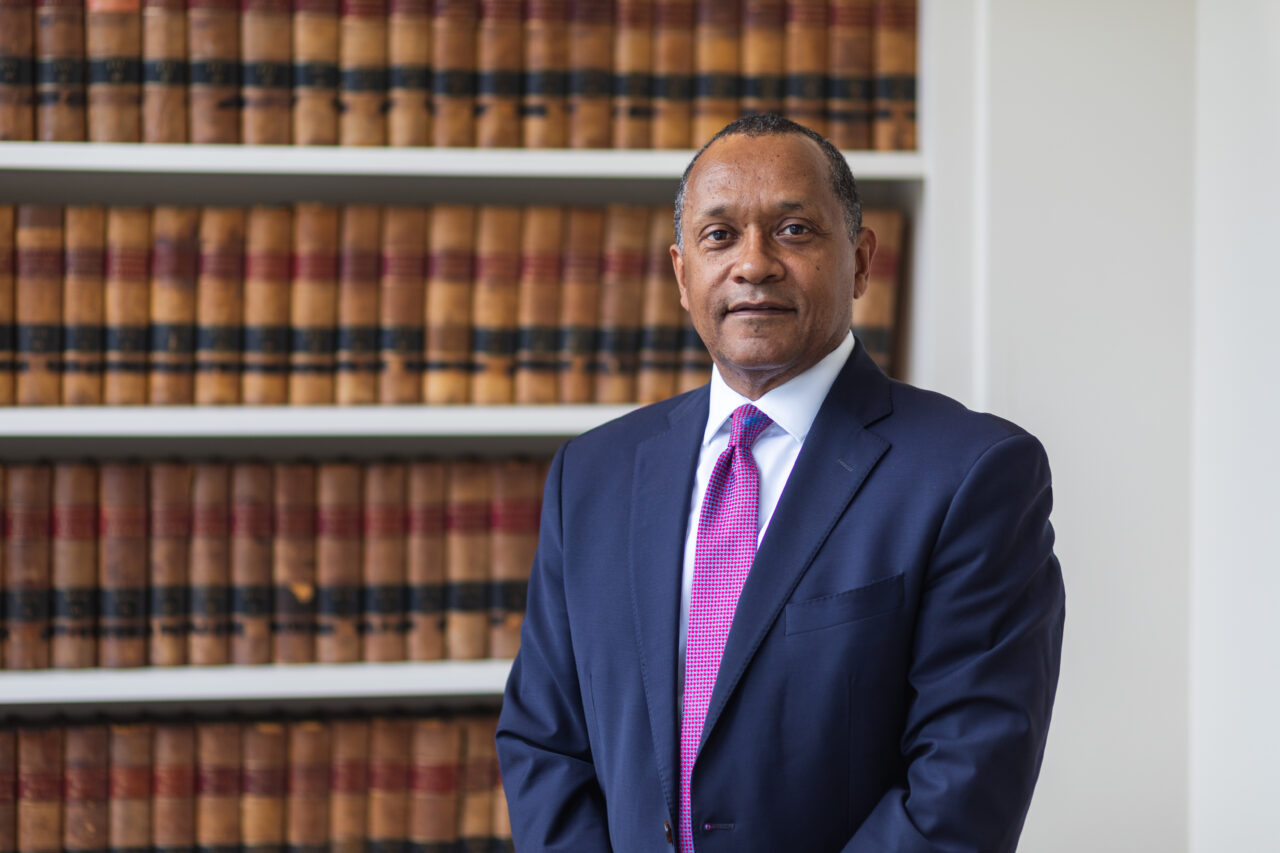- News Center
- Planning for a Just Post-Pandemic Future
Planning for a Just Post-Pandemic Future
10.26.2021
By T. Andrew Brown
We thought this would be over by now. We told ourselves everything would be back to normal now that we have the vaccine, the simple cure-all that allows us to return to the office and send our kids back to school free of worry. But nothing is ever that simple.
The pandemic has been a cruel instructor, and if it’s taught us anything, it is that our society is built on a series of interconnected systems. When one of those systems doesn’t function, the rest of those systems suffer for it.
The pandemic has brought into view the stark inequalities that exist in our society, and we’ve only seen those inequalities exacerbated as it drags on. In education, housing, business and, yes, access to the legal system, we’ve seen those who started with a disadvantage further burdened, further disenfranchised.
We’ve learned that when we react to the pandemic – when we change one of society’s constituent systems – some of the most disadvantaged among us get left behind. Not everyone has a computer, not everyone has a smartphone or a tablet. And, for some, even if we give them the fanciest models of all the latest tech, they may still not know how to use them. It’s easy to take so much of our lives for granted and make assumptions about others.
These issues were laid bare on Sept. 13, during Chief Judge Janet DiFiore’s hearing on civil legal services. The message we received from organizations, attorneys and clients alike is that people are desperate for help. It is our duty as lawyers to assist and empower these people who through no fault of their own are facing eviction, job loss, family crisis or homelessness.
The disproportionality at which the pandemic impacted those who are already struggling is staggering.
According to the Robinhood Poverty Tracker, a shared project of the Robinhood Foundation and Columbia University that tracks economic conditions in New York City, 55% of Black workers and 59% of Latino workers lost their jobs in the early days of the pandemic while 43% of white workers lost theirs. Meanwhile, out of those workers deemed essential, 31% of Black workers continued to work on site during what was then considered the peak of the pandemic, compared to 14% of Latino workers and 11% of white workers.
Those who were disadvantaged before the pandemic now struggle to access services like unemployment insurance, housing assistance and legal services. The message we heard from civil legal service providers on the 13th is that the need keeps growing.
Having the assistance of a lawyer can mean all the difference.
Aaron Morris, a Brooklyn High student who has lived in a Brooklyn shelter with his parents since February 2020, experienced just how fragile the system is. The devices his school gave him to attend class remotely weren’t of much use as his shelter lacked Wi-Fi. His father advocated for the school to provide a tablet with reliable cell service but time and time again the device failed. Disconnected and despondent that he couldn’t attend class Aaron stopped trying to log in altogether. Then his father connected with Legal Aid and the Morris’ joined a suit demanding the city equip shelters with Wi-Fi so that unhoused students could attend class. Months later, Aaron’s shelter had Wi-Fi. His grades skyrocketed and thanks to Legal Aid he started an engineering internship at Cooper Union.
Aaron was lucky to have someone as tenacious as an advocate as his father on his side as well as Legal Aid to help him through a situation that would be insurmountable to many.
When I think of Aaron and his family, I think of what it’s like to walk into the office of a civil legal services attorney. You see and hear things that you would rarely hear in most law firms.
There’s the sound of a child crying. The squeals of laughter as siblings play tag on the hallway floor. These lawyers do far more than interpret the law; they serve as social workers and confidants. They open doors that would otherwise be left closed. The lawyers who are willing to be civil legal services practitioners are amongst the best and most admirable in the profession. In the coming months, they will be called on to do much more.
Right now, Paycheck Protection Program money, government funding, subsidies and eviction moratoriums are keeping the true cost of the pandemic at bay.
That bill is going to come due, and civil legal services lawyers will have to be there to shepherd the less fortunate through. Those who have not had an advocate over the past year have probably suffered. Access to a lawyer hasn’t been simply about being represented in a courthouse. Having legal representation during the pandemic has, for many, meant keeping a job, keeping a roof overhead, or continuing an education.
We must be prepared in the coming months to be the dam against the tides that threaten to wash the hopes and dreams of so many away.
A recent Census Bureau survey found that more than six million American households are behind on rent. More than three million who are behind on payments believe they may be evicted in the next two months. It was right for New York State to extend its eviction moratorium, but the moratorium is now set to expire in January, traditionally one of the coldest months, during what has so far been a peak month for COVID infections.
We must keep in mind what Attorney General Merrick Garland wrote in his Aug. 30th letter regarding the eviction moratorium, “Once again, the legal community has an obligation to help those who are most vulnerable. We can do that by doing everything we can to ensure that people have a meaningful opportunity to stay in their homes and that eviction procedures are carried out in a fair and just manner.”
As we move toward a post-pandemic future, we need to ensure that the changes that we retain from this period benefit us all. Remote work and reliance on technology can mean less stress and better work/life balance for us, but we must ensure that those without access to such technology and education on how to use them are not denied access to justice. We cannot abandon the lessons the pandemic has taught us. We must redouble our efforts to provide access to justice to all.
Finally, we must be cognizant of the fact that change is coming to our profession, one way or another. We need to seize the reins and define our future, or else others will shape it for us. It’s important we take charge and embrace the opportunity. Otherwise, the permanence of change will be upon us, and we will be completely unprepared.
You’ll hear much more about the post-pandemic future of our profession in the coming months from the task force I appointed, which has begun its work. I invite you to explore these topics in more detail in this issue in which young lawyers share their thoughts on the future of the profession and we look at the imprint the pandemic has left on the modern law office.






